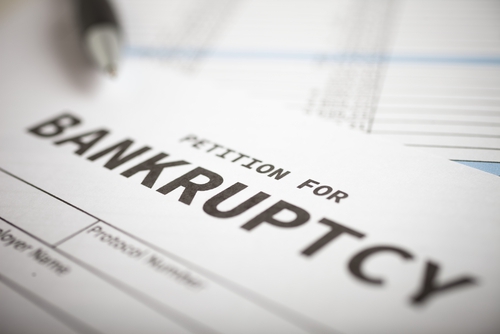
Going through a bankruptcy, either personally or with your business, can affect your ability to qualify for a mortgage. Your credit score may drop, and you may need to wait before applying for a home loan. It all depends on the size of your down payment and how high of an interest rate you can tolerate. Here’s what you need to know if you have been through a bankruptcy:
Types of Bankruptcy
There are three common types of bankruptcy: Chapter 7, Chapter 11 and Chapter 13. Chapter 7 and 13 are for personal debts while Chapter 11 is for business debts. With Chapter 7, most of your assets will be liquidated with the proceeds being paid to your creditors. You are then released from your dischargeable debts and can have a fresh start with your finances. With Chapter 13, you work out a debt repayment plan with the court, that allows you to keep certain assets like your home while you pay off your debts over three to five years. In a Chapter 11 bankruptcy, your business debts are reorganized, reduced, or discharged or some combination of all three. Even though this is business related, it can affect your personal credit score if you put any of the business debt in your name.
Waiting Periods
Any of these bankruptcy types can dramatically reduce your credit score, signaling to mortgage lenders that you might be more of a lending risk. The good news is that the effect bankruptcy has on your credit will diminish over time. Chapter 7 and 13 bankruptcies are removed from your credit report after 10 years and Chapter 11 bankruptcies will be removed after seven. And fortunately, you do not have to wait even that long before qualifying for a mortgage loan.
The minimum waiting period depends on the type of loan you want. For a conventional, conforming loan, you can apply as soon as four years after a Chapter 7 or 13 bankruptcy or just two years after a Chapter 11 discharge.
The minimum wait times are even shorter for government-backed loans. For FHA, VA or USDA loans, those with personal bankruptcies only have to wait 2 years before applying while those with a business bankruptcy have to wait just one year.
It is important to know that if your bankruptcy was due to a home foreclosure, the waiting periods could be even longer as lenders will be wary of lending to someone who has previously defaulted on a mortgage loan.
Should You Wait Longer?
Of course, if you apply for a mortgage after the minimum amount of waiting you will likely be offered higher interest rates and possibly even be asked to contribute higher down payments than if you waited longer. Interest rates that are even just one point higher can end up costing your tens of thousands of dollars in interest over the life of your loan. By waiting for at least four years and building up your credit score through timely payments on all your accounts, you will prove you are a better investment and will be rewarded with more palatable loan terms.
New Mortgage Programs are added every week
Don't let the above information deter you from obtaining the American Dream of Homeownership, there are new mortgage programs coming into the market each week. At United First Mortgage, it's our job to stay on top of the market and know of any new loan programs. So, if you've been through a bankruptcy and want to find out what home financing options are available to you - pick up the phone and give us a call today at 801-633-4383 . We'll gladly take the time to answer all of your questions.

